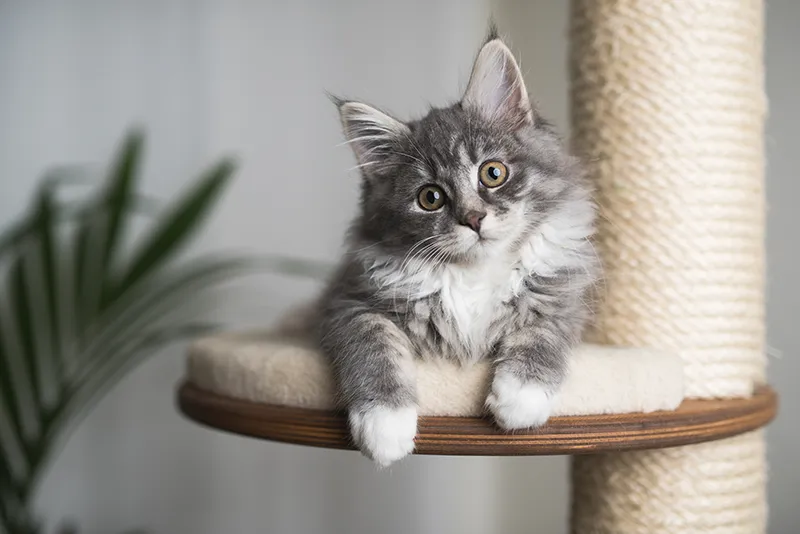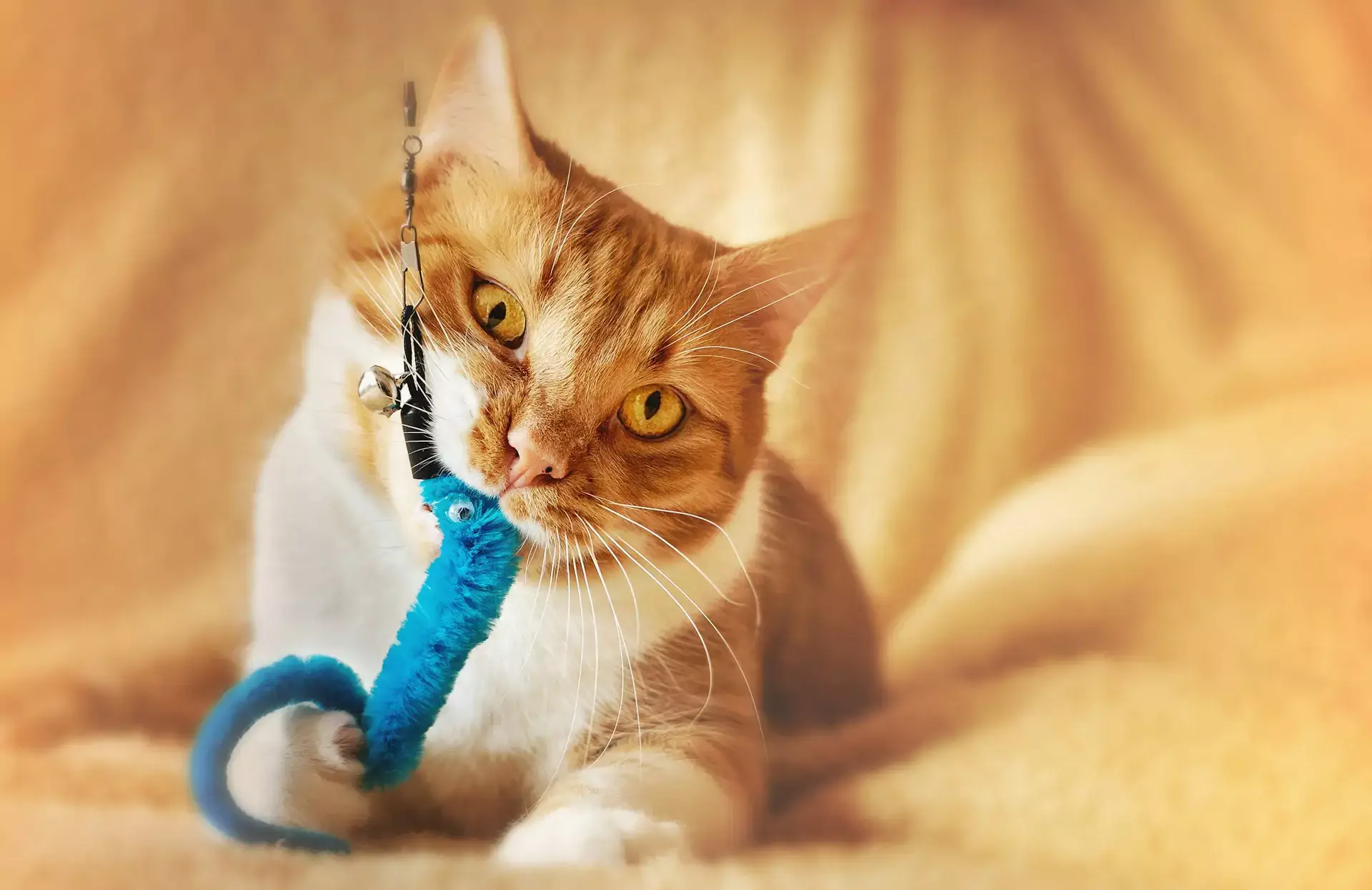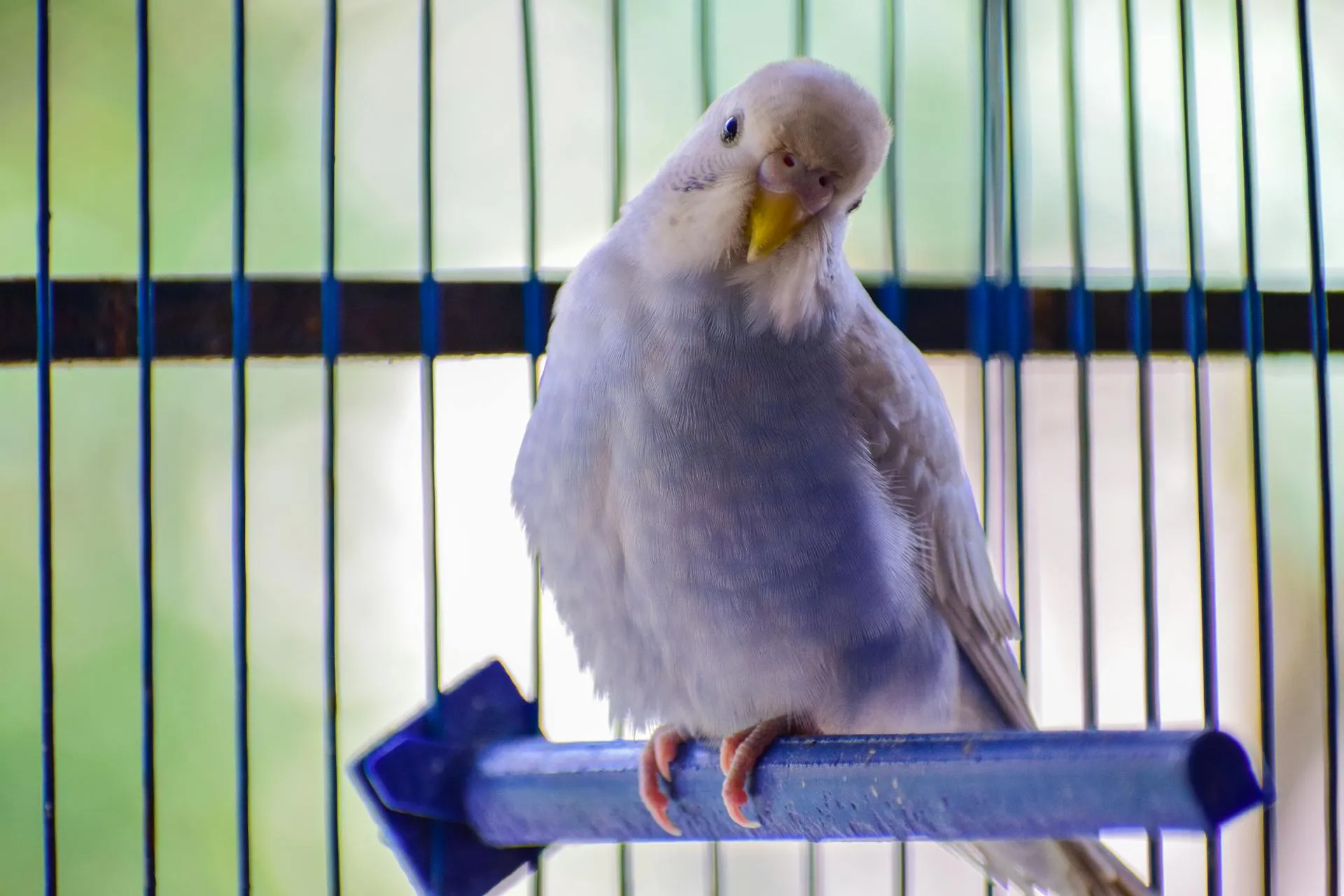Rabbits are playful, loving, and intelligent pets that thrive in a well-designed habitat. At Galena Animal Medical Clinic, your Galena, MD, pet clinic, we understand the importance of creating a safe and comfortable environment for your pet rabbit. A proper habitat ensures that your rabbit feels secure, comfortable, and has all the space they need to explore, hop, and relax. In this blog, we’ll guide you through setting up the perfect home for your bunny, so they can enjoy a happy and healthy life.
Why a Safe Habitat is Important for Your Rabbit
Rabbits are prey animals, which means they are naturally cautious and shy. A proper habitat not only keeps your rabbit physically safe but also helps reduce stress. Rabbits need an environment that gives them a sense of security, as well as plenty of space to move around and interact with their surroundings. Without the right setup, your rabbit may become anxious, bored, or even develop behavioral issues.
1. Space for Exploration and Exercise
Rabbits are active and curious creatures that need plenty of room to move, hop, and explore. While small cages can work for temporary housing, they should never be used as a long-term solution. Your rabbit’s living space should be large enough to allow them to stretch, hop around, and even lie down comfortably. A general rule of thumb is that your rabbit’s enclosure should be at least four times their body length when fully stretched out.
Consider investing in a large rabbit hutch or exercise pen that allows your rabbit to move freely. Many pet owners opt for pens that can be expanded or rearranged, giving their rabbit a larger area to explore. You can also create a dedicated bunny “playroom” in your home, giving your rabbit even more freedom to roam.
2. Safe, Comfortable Flooring
When setting up your rabbit’s habitat, it’s important to consider the flooring material. Wire flooring, commonly found in many rabbit cages, can be hard on your rabbit’s feet and may even cause injuries or sores. Instead, use solid flooring like wood, linoleum, or soft mats that are easy to clean and comfortable for your rabbit to walk on.
You can cover the floor with soft bedding, such as hay (which also serves as food for your rabbit) or shredded paper. Avoid using cedar or pine shavings, as these can be harmful to rabbits’ respiratory systems. Also, make sure your rabbit has access to clean, dry bedding at all times to maintain their comfort and hygiene.
3. Hiding Spaces for Security
Since rabbits are prey animals, they need places to hide when they feel scared or overwhelmed. A hideaway or safe retreat within their habitat is essential for your rabbit’s mental well-being. You can add a cardboard box, wooden hut, or even a tunnel where your rabbit can retreat when they need a quiet space to rest.
Rabbits will feel most at ease when they have the option to hide, especially in noisy or busy households. These safe spaces help reduce stress and allow your rabbit to recharge when needed.
4. Proper Ventilation and Temperature Control
Rabbits are sensitive to extreme temperatures, so it’s important to place their habitat in a well-ventilated area that stays cool in summer and warm in winter. Avoid placing their cage in direct sunlight or near heat sources, like radiators, fireplaces, or air conditioning units, as this can cause temperature fluctuations that may lead to health problems.
Rabbits prefer a temperature range between 60-70°F (15-21°C). Keeping their habitat in a stable, temperature-controlled area will ensure that they remain comfortable and stress-free.
5. Grooming Tools and Cleaning Supplies
A clean and tidy living space is essential for your rabbit’s health. You should clean their cage or playpen regularly to prevent the buildup of waste and bacteria. Rabbits are naturally clean animals, and they’ll appreciate a clean space to live in. To maintain a healthy habitat, follow these tips:
- Daily: Remove any soiled bedding or uneaten food.
- Weekly: Replace bedding and clean the entire habitat with safe, non-toxic cleaning products.
- Monthly: Check for any damages to the enclosure and make repairs as necessary.
You’ll also want to provide grooming tools, like a soft brush, to keep your rabbit’s fur clean and free of tangles. Grooming also promotes bonding with your rabbit and keeps their coat looking healthy.
6. Enrichment and Play
A rabbit’s habitat should include plenty of opportunities for mental stimulation and physical exercise. Boredom can lead to stress and behavioral issues, so it’s essential to provide toys and enrichment items. Some ideas for rabbit enrichment include:
- Chew toys: Rabbits need to chew to keep their teeth healthy. Provide wooden chew blocks, cardboard, or rabbit-safe hay to nibble on.
- Tunnels and ramps: Rabbits love exploring tunnels and hopping on ramps or platforms. These items encourage exercise and allow your rabbit to exhibit natural behaviors.
- Interactive toys: Treat-dispensing toys or balls that roll around can engage your rabbit’s brain and keep them entertained for hours.
7. Food and Water Station
Make sure your rabbit’s habitat includes a clean and accessible food and water station. Use ceramic or stainless-steel bowls that are easy to clean and cannot be tipped over easily. Rabbits need fresh water at all times, so it’s important to check their water supply regularly.
For food, rabbits require a high-fiber diet consisting primarily of hay, along with a small amount of fresh vegetables and rabbit pellets. Be sure to provide fresh greens like romaine lettuce, cilantro, or parsley, and avoid iceberg lettuce, as it has little nutritional value.
Click here for our previously published blog on picking the right exotic pet vet. We also did a piece on adopting a rabbit, which you can read here. Rabbit.org is also a great resource for bunny owners.
Frequently Asked Questions
1. How big should my rabbit’s cage be?
A rabbit’s cage should be at least four times the length of the bunny’s body when fully stretched out. However, rabbits thrive in larger enclosures, so you’ll also need to let your pet play in a bunny-proofed room.
2. Can I keep my rabbit in a small cage?
While a small cage can be used for temporary confinement, it’s important for rabbits to have ample space to roam and play. A small cage will not provide the necessary room for your rabbit to thrive.
3. Can I keep my rabbit outside?
Rabbits can be kept outside, but only in secure, temperature-controlled environments. If you live in an area with extreme temperatures or predators, it’s best to keep your rabbit indoors.
4. How often should I clean my rabbit’s cage?
You should clean your rabbit’s cage or habitat at least once a week, more often if it is particularly dirty. Daily cleaning of the litter box is also recommended to maintain a hygienic environment.
Visit Our Galena, MD Vet Clinic
At Galena Animal Medical Clinic, your Galena, MD, pet clinic, we want your rabbit to enjoy a long, happy life with you. Providing a safe, comfortable, and enriching habitat is one of the best ways to ensure your rabbit’s happiness and well-being. By following the tips above, you can create an environment where your rabbit feels secure and loved.
Are you ready to set up the perfect habitat for your bunny? Schedule an appointment with us today to learn more about rabbit care!
Click here to visit our Service page and find out more about our clinic and the animals we treat. You can also go here to learn more about our Critical Care services, or go here to learn more about our Exotic Pet care offerings.
This blog is meant to be informational only. Always consult with your veterinarian for the right medical advice, diagnosis, or treatment plan for your pet and follow their advice.







!Social Media Icons